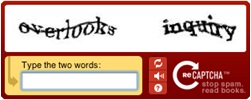La Bibliothèque nationale de Luxembourg et le Centre national de littérature ont présenté lors des Journées du Livre de Walferdange la nouvelle interconnexion entre le moteur de recherche www.a-z.lu et le Dictionnaire des auteurs luxembourgeois en ligne www.dictionnaire-auteurs.lu. Cette coopération entre les deux institutions fournit une plus-value aux utilisateurs des deux outils, qu’ils soient chercheurs, enseignants, étudiants, élèves ou autres lecteurs, en leur offrant une passerelle entre les livres et leurs auteurs.
Un lecteur qui consulte sur www.a-z.lu les références d’un ouvrage écrit par un écrivain luxembourgeois peut, en cliquant sur l’icône « détails », puis sur le nom de l’auteur, accéder directement à la biographie de cet auteur publiée par le Centre national de littérature. Comme le Dictionnaire des auteurs luxembourgeois est publié en langues allemande et française, le lecteur pourra consulter la biographie dans la langue de son choix. À l’inverse, en naviguant dans le Dictionnaire des auteurs, le lecteur accède, en cliquant sur le titre d’un ouvrage figurant dans la bibliographie de l’auteur de son choix, directement à la référence bibliographique correspondante dans www.a-z.lu. Il voit ainsi d’un coup d’œil dans quelles bibliothèques luxembourgeoises il pourra consulter ou emprunter ce titre.
Informations supplémentaires :
www.a-z.lu
Dans le cadre de sa stratégie de développement de services en ligne, la Bibliothèque nationale de Luxembourg (BnL) a lancé au printemps 2013 un outil de recherche nouvelle génération. Ce nouveau moteur de recherche, accessible via le portail www.a-z.lu , permet aux internautes de découvrir facilement, à partir d’un seul point d’accès, les collections des 50 bibliothèques du réseau bibnet.lu, les contenus numérisés par la BnL dans le cadre de son projet eluxemburgensia et une grande partie des publications de la bibliothèque numérique findit.lu.
La BnL a développé un outil qui est à la fois intuitif et performant. Outre la rapidité de la recherche, il offre une présentation claire des résultats ainsi que des accès directs aux documents numériques. La BnL implémentera bientôt une version adaptée à l’utilisation de www.a-z.lu par équipements mobiles.
www.dictionnaire-auteurs.lu
Édité par le Centre national de littérature à Mersch, le Dictionnaire des auteurs luxembourgeois en ligne présente des auteurs qui, depuis 1815, ont participé à la vie littéraire du Grand-Duché de Luxembourg, indépendamment de leur nationalité et de la langue littéraire choisie, et qui peuvent se prévaloir d’au moins une monographie autonome littéraire. L’utilisateur y trouve les données bio-bibliographiques de ces auteurs ainsi que leur évolution dans le contexte de l’histoire de la littérature. Quelque 1.100 auteurs avec leurs pseudonymes et leurs variations onomastiques, 7.600 œuvres en 12 langues ainsi que des informations sur des prix littéraires, des traductions, des adaptations audiovisuelles et des sources d’archives sont accessibles en ligne, en version mobile et en application pour iPhone et iPad. L’app fut déjà téléchargée plus de 1200 fois ; la version mobile fut consultée cette année plus de 40.000 fois, avec un total de plus de 1.600 000 pages.
Communiqué par la Bibliothèque nationale de Luxembourg et le Centre national de littérature
Contacts :
BnL : www.bnl.lu christine.kremer@bnl.etat.lu, Tél. : +352 229 755-226
CNL : www.cnl.public.lu nicole.sahl@cnl.etat.lu, Tél. : +352 32 69 55-346



